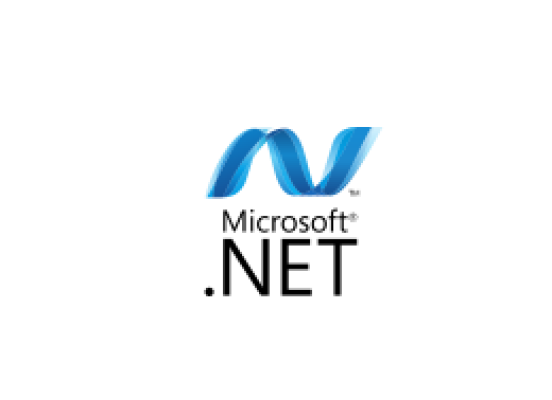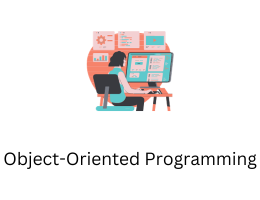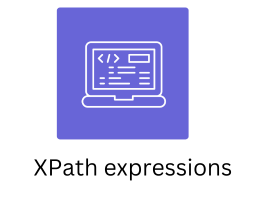
Advantages and Disadvantages of .NET Programming Language
- By admin --
- Tuesday, 13 Jun, 2023
The .NET framework, developed by Microsoft, has gained significant popularity among developers worldwide. It provides a comprehensive set of tools and libraries for building various types of applications, including web, desktop, mobile, and cloud-based applications. In this article, we will explore the advantages and disadvantages of the .NET programming language.
Advantages of .NET Programming Language:
-
Versatility: .NET supports multiple programming languages, such as C#, Visual Basic, and F#, allowing developers to choose their preferred language for development. This versatility enables teams with diverse skill sets to collaborate efficiently on a single project.
-
Large Developer Community: .NET has a vast and active developer community. This community provides abundant resources, such as tutorials, forums, and libraries, which facilitate learning, problem-solving, and sharing of best practices.
-
Platform Independence: .NET applications can run on multiple platforms, including Windows, macOS, and Linux, through the cross-platform framework called .NET Core. This enables developers to reach a broader audience and target different operating systems without significant code changes.
-
Integrated Development Environment (IDE) Support: Microsoft's Visual Studio is a powerful IDE that provides excellent support for .NET development. It offers features like code completion, debugging tools, and integrated testing frameworks, enhancing productivity and reducing development time.
-
Language Interoperability: .NET languages are designed to interoperate seamlessly, allowing developers to reuse existing code and libraries across different languages. This interoperability promotes code sharing and modularity, leading to faster development and easier maintenance.
-
Extensive Framework and Library Support: .NET provides a vast framework and library ecosystem, including ASP.NET for web development, Windows Presentation Foundation (WPF) for desktop applications, and Xamarin for cross-platform mobile app development. These frameworks simplify the development process by providing pre-built components and functionalities.
-
Robust Security Features: .NET incorporates robust security measures, such as code access security, authentication, and encryption, to protect applications from various threats. These security features help developers build secure applications and safeguard sensitive data.
-
Performance: With the introduction of .NET Core, the performance of .NET applications has significantly improved. The runtime optimizations and lightweight nature of .NET Core contribute to faster startup times, reduced memory usage, and improved overall performance.
-
Seamless Integration with Microsoft Technologies: .NET seamlessly integrates with other Microsoft technologies, such as Azure cloud services, SQL Server databases, and Active Directory. This integration simplifies the development and deployment of enterprise-level applications and promotes interoperability within the Microsoft ecosystem.
-
Continuous Innovation: Microsoft continues to invest in the evolution of the .NET framework, introducing new features, enhancements, and performance improvements. This commitment to innovation ensures that developers have access to the latest tools and technologies, keeping their applications up-to-date and competitive.
Disadvantages of .NET Programming Language:
-
Windows Dependency: While .NET Core introduced cross-platform capabilities, the traditional .NET Framework primarily targets Windows-based systems. This limitation may restrict the deployment of .NET applications on non-Windows platforms or require additional configuration and dependencies.
-
Learning Curve: Despite the availability of extensive documentation and resources, learning the .NET framework and associated languages can be challenging for beginners. The vastness of the framework and its ecosystem may require a significant investment of time and effort to become proficient.
-
Performance Overhead: While .NET Core offers improved performance, compared to the traditional .NET Framework, it may still have a slight performance overhead compared to native languages like C++. Certain performance-critical applications may require fine-tuning or optimization to achieve the desired speed.
-
Memory Consumption: .NET applications, especially those using the full .NET Framework, can have higher memory consumption compared to native applications. This can be a concern for resource-constrained environments or applications targeting low-powered devices.
-
Limited Mobile Development Options: Although Xamarin provides a cross-platform mobile development framework within the .NET ecosystem, the native development experience for mobile apps on iOS and Android is still dominated by other technologies, such as Swift, Objective-C, and Java/Kotlin. This may limit the options for developers targeting mobile platforms.
-
Licensing Costs: While the .NET framework itself is free and open-source, certain Microsoft tools, such as Visual Studio, may have licensing costs associated with them. This can be a consideration for small or independent developers with limited budgets.
-
Vendor Lock-In: Since .NET is a Microsoft technology, there is a level of vendor lock-in involved. Organizations heavily invested in the .NET ecosystem may find it challenging to switch to alternative technologies or platforms without significant effort and cost.
-
Limited Community Packages: While the .NET community is vast, some niche or specialized areas may have fewer community-supported packages or libraries compared to other popular programming languages. This can result in more manual coding or reliance on third-party solutions.
-
Legacy Codebase: The .NET framework has been around for a long time, and many applications built on earlier versions of .NET may require maintenance or modernization. This can be a challenge, especially if the codebase lacks proper documentation or experienced developers.
-
Limited Cross-Platform UI Development: While .NET Core enables cross-platform development, the options for building native user interfaces (UI) that look and feel native on different platforms can be limited. Developers may need to rely on platform-specific UI frameworks or web-based UI solutions to achieve consistent cross-platform experiences.
In conclusion, the .NET programming language and framework offer a wide range of advantages, such as versatility, a large developer community, platform independence, and robust security features. However, there are also disadvantages to consider, including Windows dependency, a learning curve, performance overhead, and limited mobile development options. By understanding these pros and cons, developers can make informed decisions about when and how to leverage .NET for their projects.





